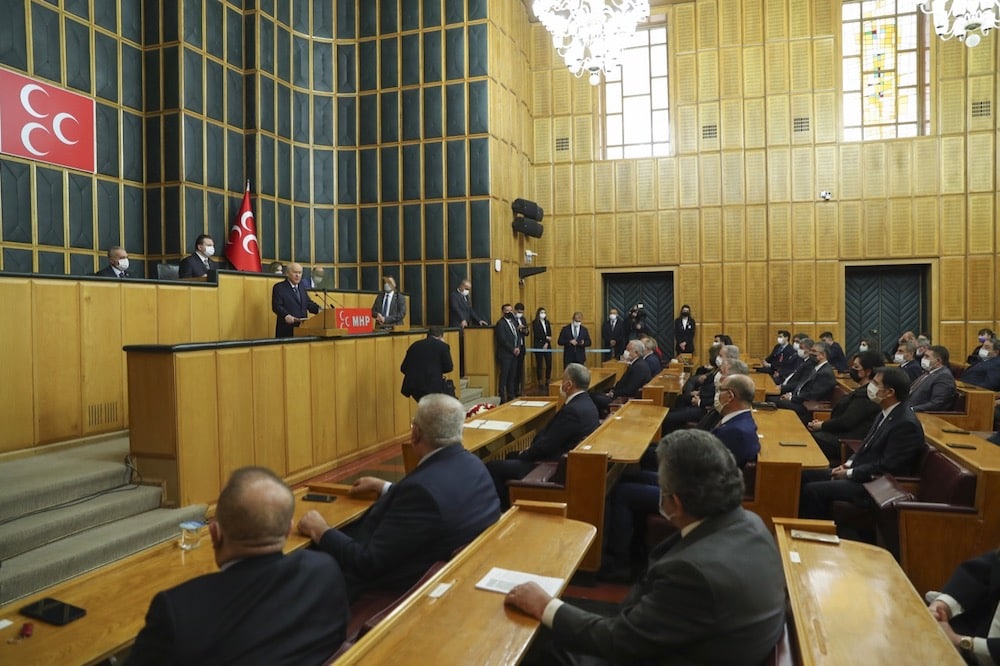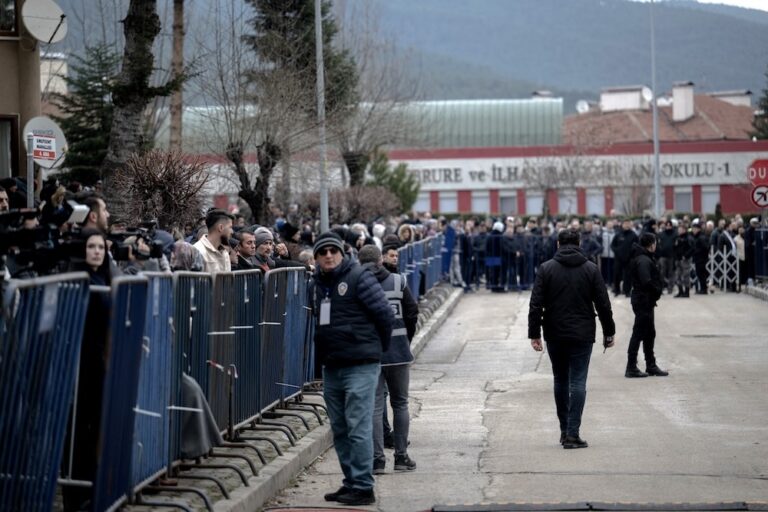With less than a year to go to presidential and parliamentary elections in Turkey, media and journalists are being threatened by ultra-nationalist politicians.
This statement was originally published on rsf.org on 12 August 2022.
With less than a year to go to presidential and parliamentary elections in Turkey, media and journalists are being threatened by ultra-nationalist politicians. Reporters Without Borders (RSF) condemns these intimidation attempts and calls on Turkey’s political parties to see reason.
“We fear that the threats from ultra-nationalist circles will open the way to another spiral of violence against outspoken journalists, as it did in the 2019 local elections, when the ruling party and its ultra-nationalist ally lost for the first time in the metropolitan areas,” said Erol Onderoglu, RSF representative in Turkey. “Violence and the frequent use of threats have no place in a democratic electoral process.”
The latest victims include Latif Simsek, a journalist who was attacked by the nationalist parliamentarian Cemal Enginyurt and his bodyguard during a break in a TV100 studio debate on the evening of 6 August, after a heated exchange between them. In this case, the Istanbul prosecutor’s office has launched an investigation, but judicial impunity and political polarisation are fuelling concern about a new wave of violence against journalists in the run-up to the June 2023 elections.
On 4 August, interior minister Süleyman Soylu launched a verbal attack on the left-wing daily newspaper BirGün (Day), accusing it of being “the PKK press mouthpiece” – an implicit threat because the PKK (the Kurdistan Workers’ Party) is banned in Turkey. He also accused it of trying to smear him by publishing a photo linking him to Yedi Iklim (Seven Climates), a publishing house alleged to have leaked public sector employee exam questions.
The newspaper had specified that the photo was taken at an interior ministry ceremony in 2017 with candidates for deputy prefect positions, and that the publishing house had used it for a campaign promoting its branch in the northwestern city of Bursa.
Ultra-nationalist party threatens TV channel
The leadership of the Nationalist Movement Party (MHP) – the ultra-nationalist party that is the main ally of President Recep Tayyip Erdogan and his Justice and Development Party (AKP) – threatened the HaberTürk (Turkish News) TV channel on 3 August over comments made by a studio guest. The guest, former republican parliamentarian Behran Simsek, had said the dismissed head of the Students Examination Centre (ÖYSM) had links to the MHP and that he was unhappy with the growing influence of religious groups.
In their response, MHP president Devlet Bahçeli and vice-president Semih Yalçin accused Turgay Ciner, the CEO of the company that owns HaberTürk, the Ciner Media Group, of imposing an editorial line that was “hostile to the Presidential Alliance,” and openly threatened him, saying, “He will pay for this.”
“Those who join in the mission of accusing and slandering the Presidential Alliance constitute the cornerstones of indecency and will have to pay,” Bahçeli said. “Everything will be done so that those who dare to toy with the tranquillity and hopes of our nation will certainly regret it.”
Defending HaberTürk, the TV channel’s news and current affairs coordinator, Kürsad Oguz, said: “Semih Yalçin’s comments were broadcast live. Neither myself nor our presenter expressed any criticism of the MHP or the ÖYSM’s former president in this connection. This criticism came from one of our guests, which is normal in an open discussion.”
On 3 August, a pro-Erdogan activist calling himself “Dr Mustafa Yücel” used his Twitter account to threaten two well-known anchors working for critical TV channels – Zafer Arapkirli (KRT) and Aysenur Arslan (Halk TV) – because of their support for Esin Davutoglu Senol, a specialist in infectious diseases who has been targeted by Turkish anti-vaxxers. Yücel called them “enemies of Erdogan, Islam and the State.” He was previously arrested for threatening Senol but was released under judicial control.
The AKP-MHP Alliance’s defeat in the March 2019 local elections was followed by several months of violence against republican journalists and journalists close to Iyi, a new party formed by a group that broke away from the MHP in October 2017. Three journalists were attacked in the street by ultra-nationalists – Yavuz Selim Demirag in Ankara, Hakan Denizli in Adana and Idris Özyol in Antalya – for criticising the AKP-MHP Alliance.
Although not yet officially launched, the 2023 elections are expected to be very tense. The Presidential Alliance will be pitted against the National Alliance – a coalition of six very different parties (CHP, Iyi, Gelecek, Deva, Saadet and Demokrat) that are calling for a return to the parliamentary system. Several polling companies say the president is running behind this opposition alliance. This is unprecedented in 20 years of rule by Erdogan.



